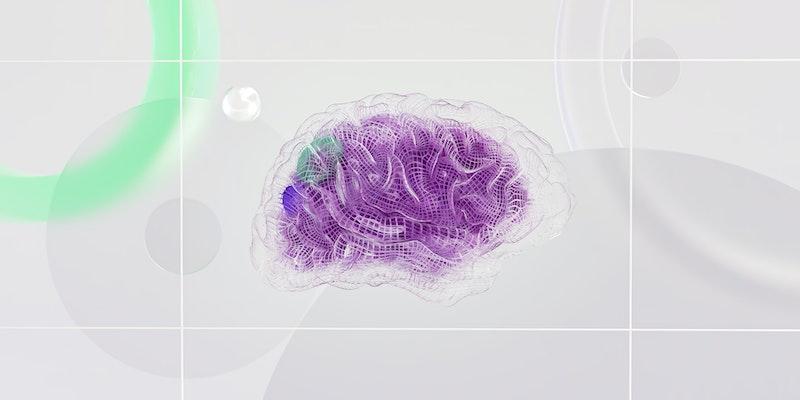Understanding Schizophrenia: A Comprehensive Guide
Oct 01, 2023
Schizophrenia severely and chronically impacts thinking, perception, emotions, language, self-image, and behavior. This complex condition affects 1% of the global population, requiring comprehensive understanding and management.
What Is Schizophrenia?
Mental illness schizophrenia continues to fascinate and challenge healthcare professionals worldwide. The symptoms of this disorder affect a person's thinking, feeling, and acting. Misconceptions about Schizophrenia have caused stigma and misunderstanding. It is critical to demystify these misconceptions and shed light on what Schizophrenia truly entails.
Nature of Schizophrenia
Schizophrenia is fundamentally a form of psychosis, signifying that affected individuals occasionally find it challenging to distinguish between reality and their thoughts and ideas. This fundamental nature of the disorder often manifests unique signs of Schizophrenia, including hallucinations, delusions, and impaired thought processes.
One common myth is the notion of a "split personality," which is not a characteristic of Schizophrenia. The disorder does not induce violent behavior inherently, challenging another widespread misconception. These myths underline accurate information dissemination's significance in fostering a more empathetic and informed society.
Global Prevalence of Schizophrenia

World Health Organization (WHO) data indicates that over 20 million individuals worldwide grapple with Schizophrenia, illustrating its extensive reach. This prevalence highlights the necessity for a robust healthcare framework and societal support to address the multifaceted needs of those affected.
Demographic Considerations
Both genders are susceptible to Schizophrenia, though the onset tends to be earlier in men than in women. These differences in onset times necessitate gender-sensitive approaches in diagnosis and management, considering each demographic's distinct needs and experiences.
Risk Factors
Identifying and understanding the various risk factors, including genetic predispositions and environmental elements, are crucial in evaluating the likelihood of developing Schizophrenia. Such knowledge contributes to developing preventive strategies and informs individuals about the signs of Schizophrenia, fostering early intervention.
Clinical Features and Symptoms
Schizophrenia has different and impactful symptoms. People might feel many positive, negative, and cognitive symptoms. Clinicians can personalize treatment to each patient's disorder symptoms using these categories.
Positive Symptoms
These symptoms represent excesses or distortions in everyday functioning. Hallucinations and delusions are prime examples, often leading to a distorted perception of reality. Positive symptoms can be particularly distressing, resulting in unpredictable behaviors and a profound impact on daily life.
Negative Symptoms
Deficits in normal emotional responses or thought processes mark negative symptoms. Apathy, anhedonia, and social withdrawal epitomize this category. These symptoms often pose significant challenges, as they can interfere with the individual's ability to perform daily activities and maintain relationships.
Cognitive Symptoms
Cognitive symptoms affect memory, attention, and executive function. People with Schizophrenia, including disorganized Schizophrenia, may have trouble organizing thoughts, making decisions, and interpreting information, which are essential to daily life.
Causes and Risk Factors of Schizophrenia

Medical researchers continue to study Schizophrenia's causes. A multifactorial cause involving genetic, neurobiological, and environmental factors is likely.
Genetic Predisposition
Genetics form the bedrock of schizophrenia susceptibility, evidenced by a heritability rate hovering around 80%. Individuals with a first-degree relative diagnosed with Schizophrenia see their risk of developing the disorder markedly heightened. Twin studies further accentuate the substantial role of genetics, illuminating the intricate interplay between heredity and the manifestation of signs of Schizophrenia.
Neurobiological Factors
Neurobiological anomalies represent another cornerstone in Schizophrenia's etiology. The condition has been linked to dopamine, glutamate, and serotonin neurotransmitter circuit abnormalities. Schizophrenia, including disorganized Schizophrenia, has anatomical abnormalities in brain areas involved in emotion control and cognition.
Environmental Triggers
Environmental components add another layer of complexity to Schizophrenia's multifactorial origin. Significant ecological triggers include stressful life events, prenatal exposure to infections, and substance misuse. Insight into these elements not only demystifies how common Schizophrenia is but also facilitates the identification of preventive measures and early interventions.
Diagnostic Criteria
Mental health specialists must thoroughly assess Schizophrenia to diagnose it. Due to the disorder's complexity, the diagnosis must include symptomatology, elimination of other illnesses, and medical history.
Assessment and Evaluation
Initial assessment encompasses a thorough evaluation of symptoms, medical history, and, in some cases, physical examination. The aim is to rule out other medical conditions or substance-induced disorders that might mimic the signs of Schizophrenia, ensuring diagnostic precision.
Standardized Criteria
Schizophrenia diagnosis relies on the DSM-5, which specifies criteria. These criteria include hallucinations, delusions, disordered speech, and substantial daily functioning impairment.
Differential Diagnosis
Diagnosing Schizophrenia from bipolar disorder and schizoaffective disorder, which share symptoms, is crucial. This discernment is essential for creating a successful patient-specific treatment plan.
Confirmatory Tests
While there are no definitive tests for Schizophrenia, specific medical tests, such as brain imaging and blood tests, might be conducted to exclude other medical conditions. Identifying the distinct signs of Schizophrenia and differentiating them from other disorders is integral to accurate diagnosis and subsequent management.
Treatment and Management
A schizophrenia management plan must combine pharmacotherapy, psychotherapy, and community support. This personalized approach reduces symptoms, prevents relapses, and improves the quality of life for people with disorganized Schizophrenia.
Pharmacotherapy
Antipsychotics are the primary schizophrenia treatment. These drugs regulate neurotransmitter imbalances to reduce positive symptoms and relapse. Medication adherence is crucial to schizophrenia progression and symptoms.
Psychotherapy
Cognitive-behavioral therapy (CBT) has emerged as a productive psychotherapy for Schizophrenia. CBT modifies maladaptive thought patterns, fosters coping strategies, and enhances social functioning. Psychotherapy offers hope and empowerment for individuals grappling with common schizophrenia-related challenges.
Rehabilitation
Rehabilitation services play a vital role in the continuum of care for individuals with Schizophrenia. These services facilitate social reintegration vocational training and help with daily living activities, fostering autonomy and a sense of belonging. In assessing how common Schizophrenia is within communities, the availability of such supportive networks is indispensable.
Prognosis and Recovery
The course of Schizophrenia is highly variable, with some individuals experiencing full recovery while others may face persistent challenges. Factors such as early intervention, adherence to treatment, and a robust support system can significantly impact the prognosis.
Living with Schizophrenia
Schizophrenia management involves resilience, support, and self-care throughout life. By identifying recurrence, following therapy, and seeking help from family, friends, and mental health experts, schizophrenia patients can live productive lives. Schizophrenia support groups and organizations create camaraderie and understanding.





